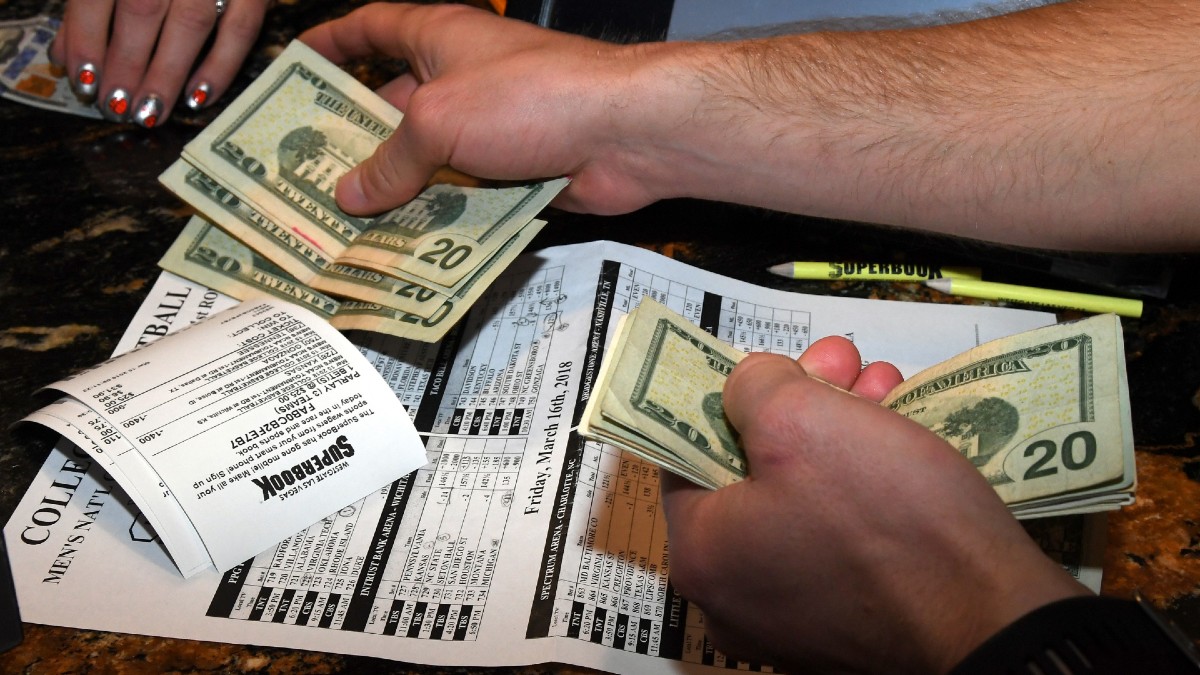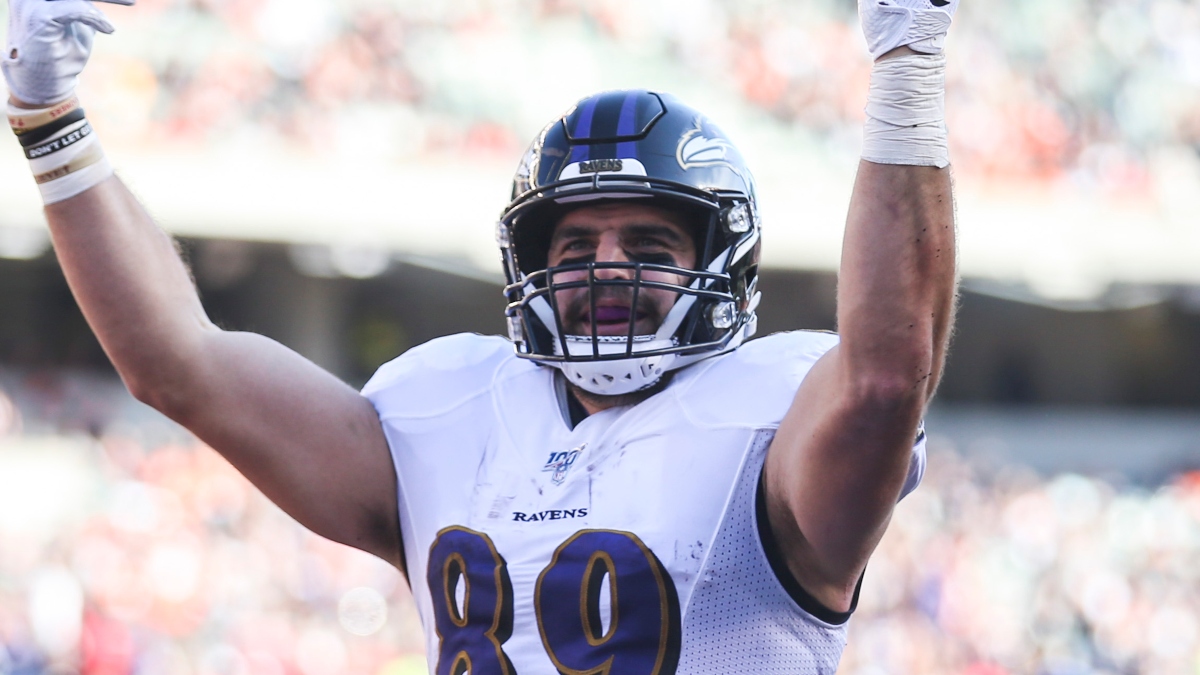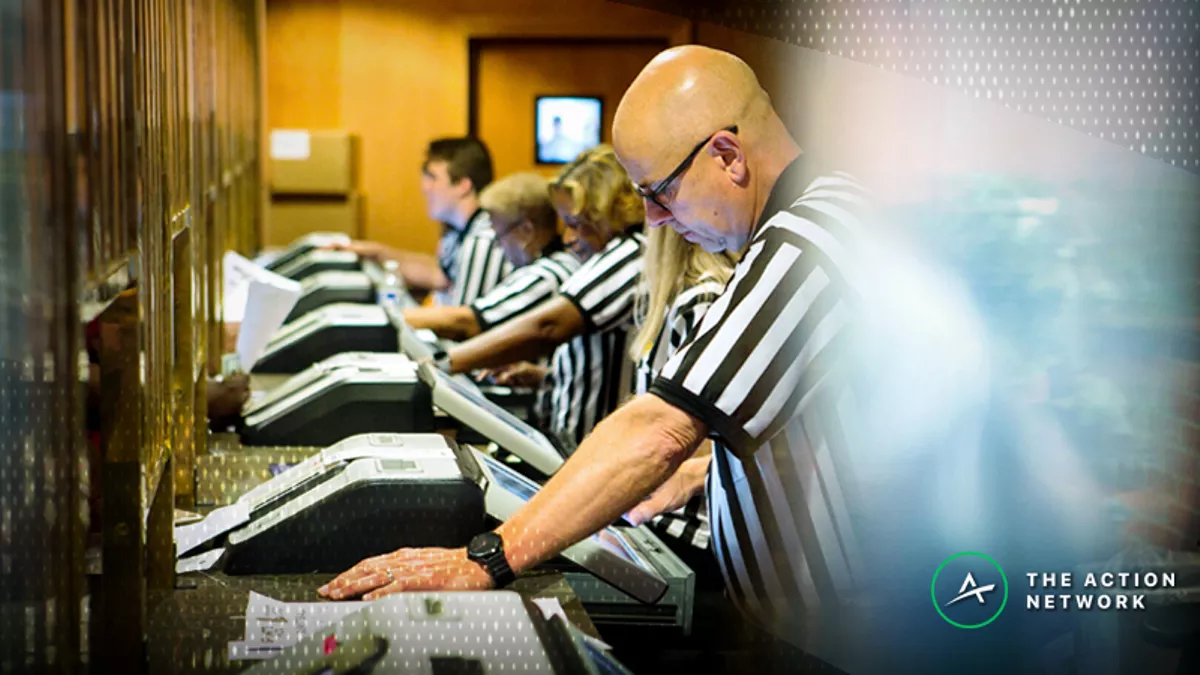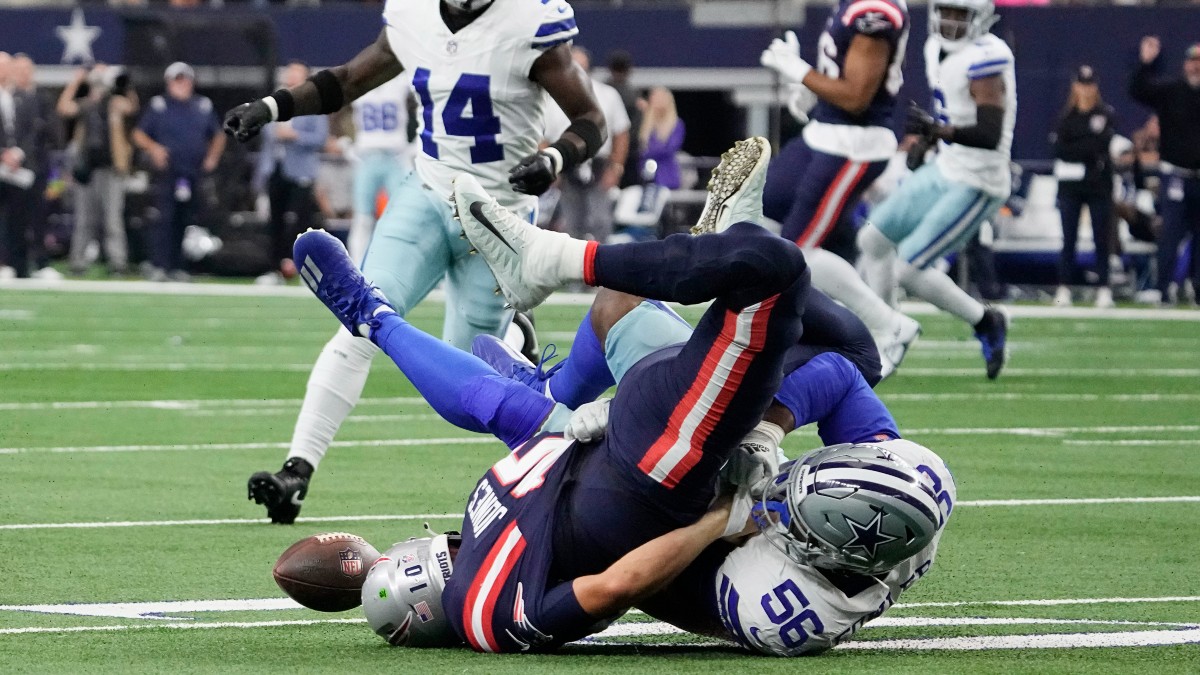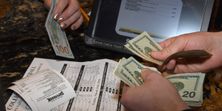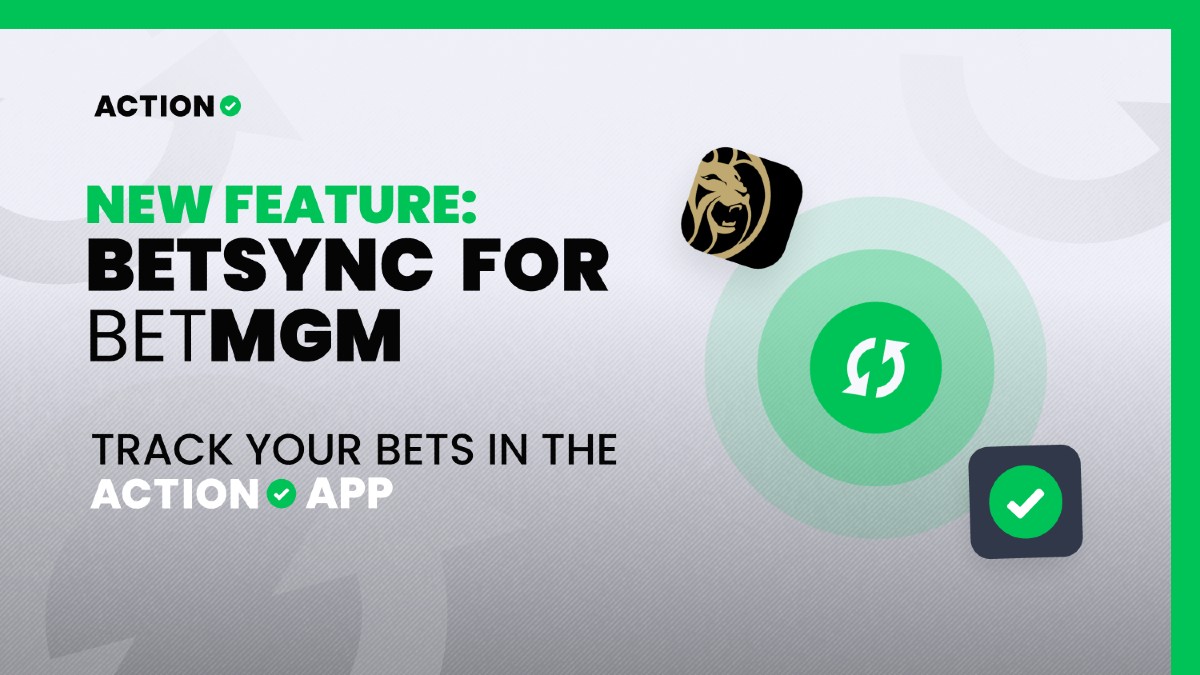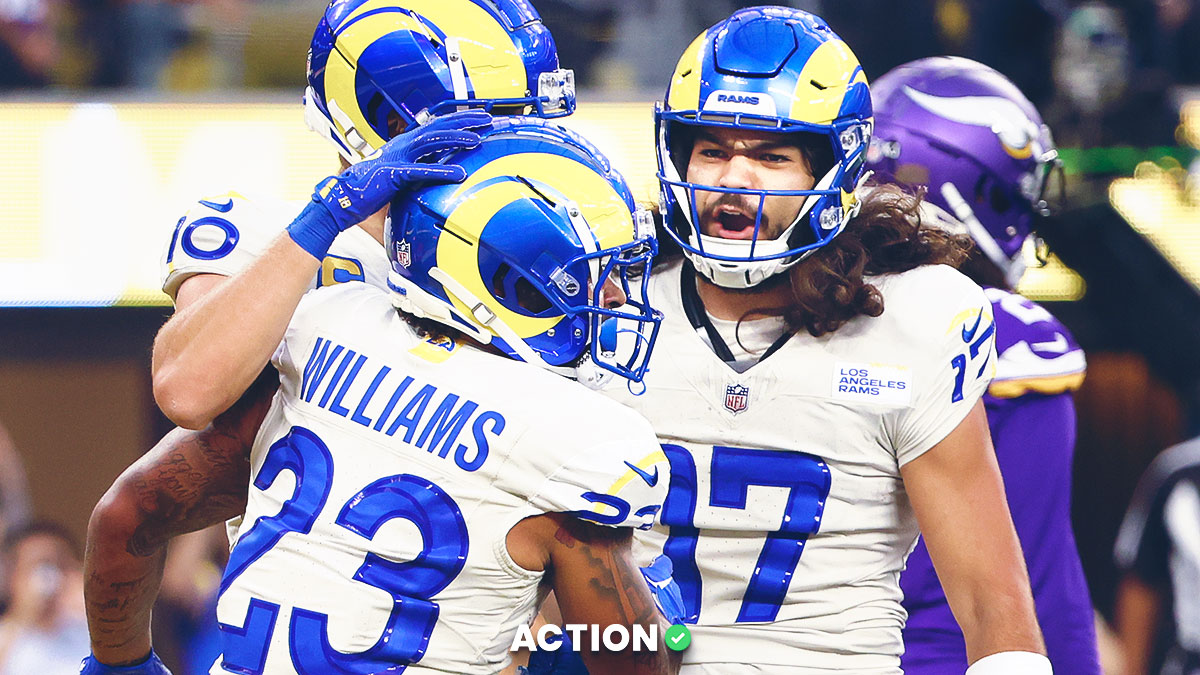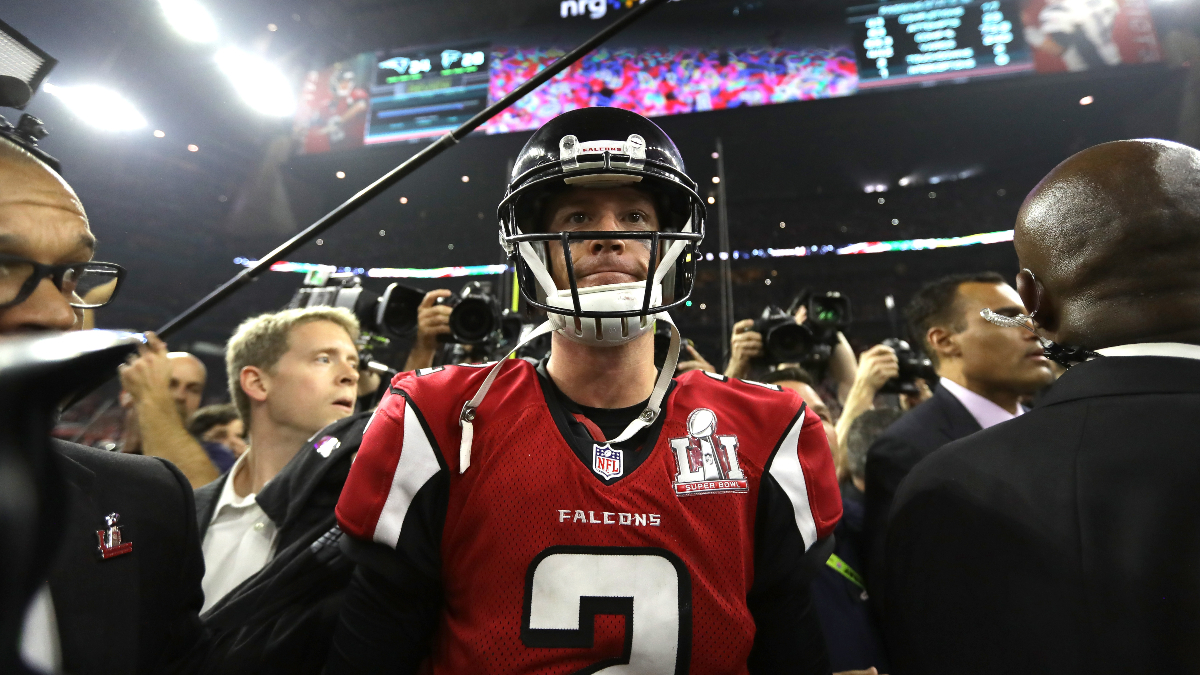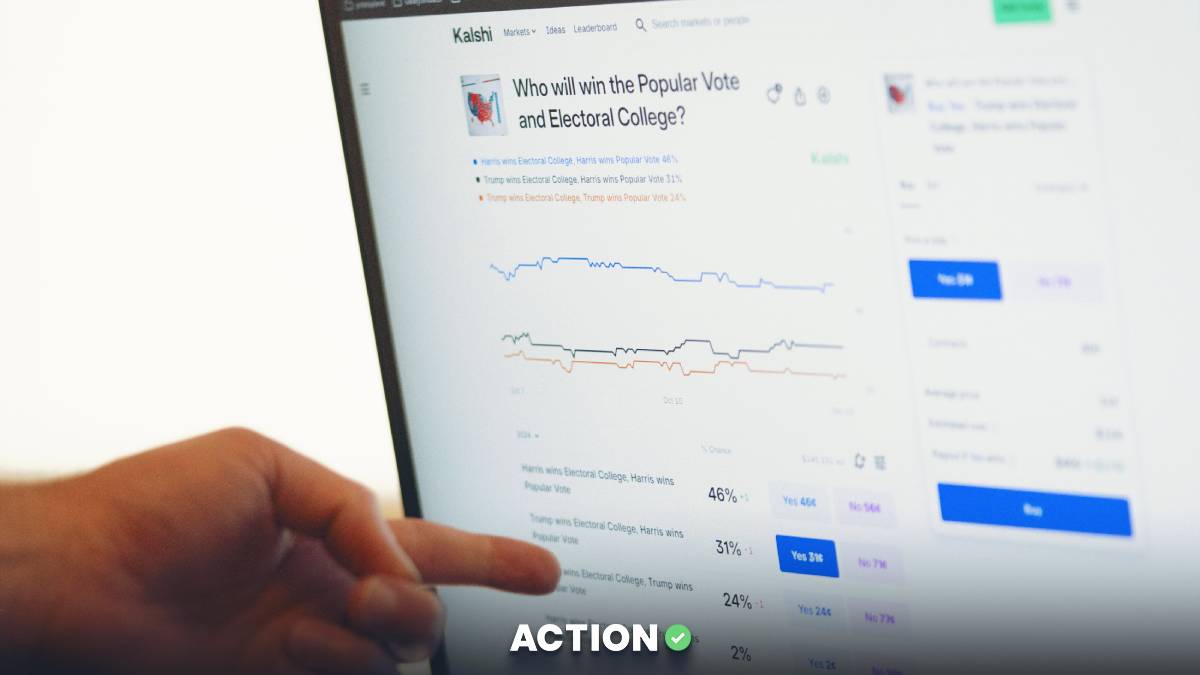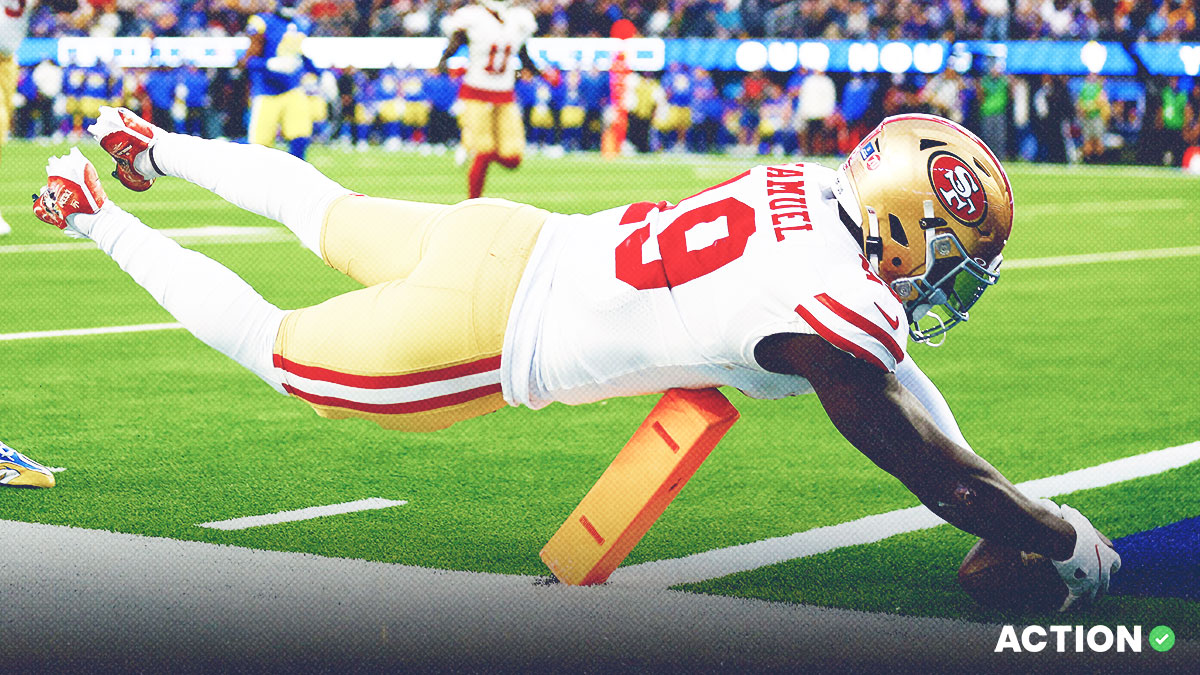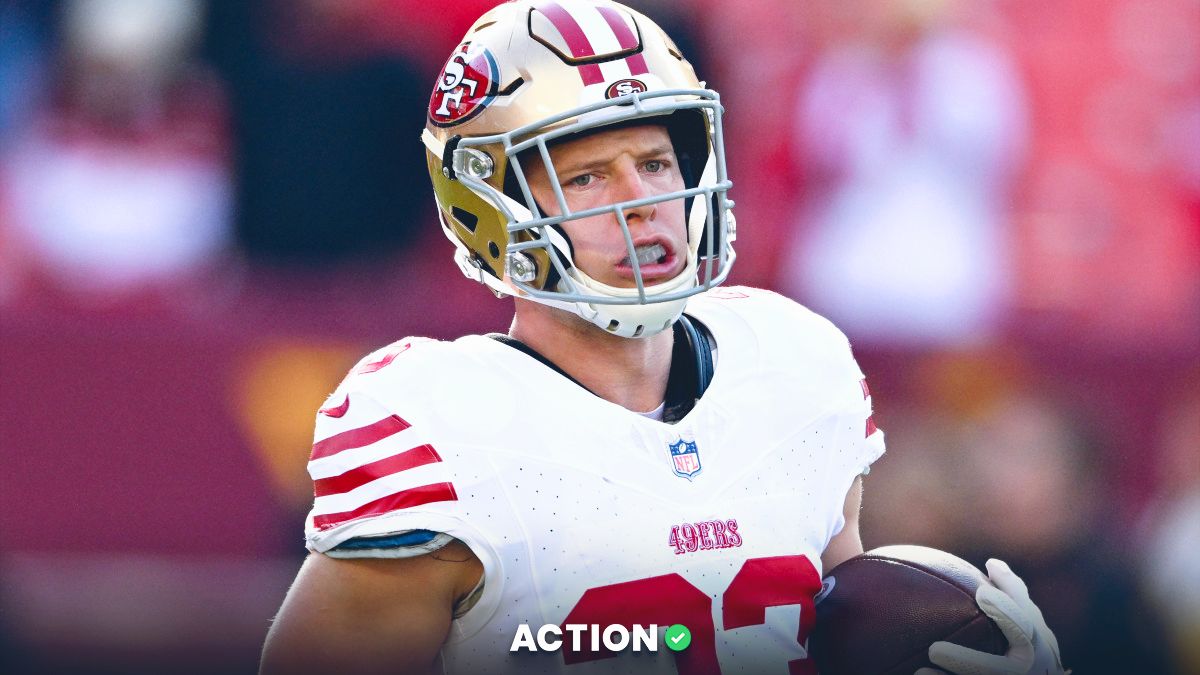Juice in sports betting is the cut a sportsbook keeps for taking your bet. It's also known as the "vig."
If you bet $10 on a point spread against a friend, the winner gets $10. But when you're betting at a sportsbook, you have to pay a cut to the book for taking your action — your $10 would only return $9.09.
Here's a more detailed breakdown.
Juice Definition & Examples
Juice in sports betting is the cut a sportsbook takes from every bet.
It's most commonly denoted next to a point spread, like the -110 here at DraftKings:

So what does -110 mean? Check out our post on how to read American odds if you want more detail.
But in short, that -110 is telling you that you must pay a 10% cut on your bet no matter what side you want to bet.
Let's use that example from DraftKings above.
Penn State is a 6.5-point underdog against Ohio State. And that -110 indicates that for every $10 you want to win on Penn State +6.5, you need to risk $11. It's the same for Ohio State -6.5 — every $10 you want to win, you must risk $11.
Juice on most football point spreads will be -110 on both sides, but it can vary.
Let's say the sportsbook is taking more bets on Ohio State, but isn't quite ready to move the spread from -6.5 to -7 yet. They might adjust the juice to -120 on Ohio State, and even money (+100) on Penn State.
Different sportsbooks, like BetMGM or Fanatics, take different cuts depending on what you're betting. While a normal NFL point spread should be -110 (10%) on both sides, a player prop might be -120 (20%) on both sides.
That's why the house has such an advantage — they're collecting at least $1 for every $10 bet. Over thousands of bets, that adds up.
How Is Sports Betting Juice Calculated?
If you want to get more technical on calculating juice, read on.
Every set of odds in sports betting is just the probability of all the outcomes offered.
An even-money bet like a coin flip is 50% on each side, meaning the implied probability of the event is 100%.
But the probability when betting sports will be greater than 100%, because the sportsbook needs its cut.
You can calculate the juice by adding up the implied probabilities of each side, and then subtracting from 100.
So how do you convert to implied probability?
Use our Odds Converter tool to get implied probabilities, or you can do it yourself.
Use the following formula for anything with a minus sign in front of it, but drop the negative sign.
Negative Odds / (Negative Odds + 100) * 100
For anything with a plus sign, use this to get the implied probability.
100 / (Positive Odds + 100) * 100
The most common juice is -110 on two football point spreads. Using the first formula, we get:
110 / (110 + 100) * 100 = 52.4%
That means you need to win that bet 52.4% of the time to break even in the long run. The sportsbooks have a 2.4% edge over your bet, and a 4.8% hold on that game altogether before it even begins.
Is There Juice on Moneylines?
There is. The gap between the two moneylines is the juice. Most commonly, sportsbooks will offer a 20-cent line.
Take this hypothetical Yankees–Red Sox game in which New York is favored.
- Yankees -140
- Red Sox +120
The implied probability of the Yankees winning is 58.33%. For the Red Sox, it's 45.45%. That adds up to 103.78%, meaning the sportsbook has a 3.78% hold on this wager.
Some books will offer 10-cent lines on baseball moneylines, meaning in this scenario, the Yankees could be -135 and the Red Sox +125.
Is There Juice on Futures?
Big time.
You may look at Super Bowl odds and see a bunch of teams with long odds and think you're getting a great deal. But futures markets have more juice baked in than almost any other market.
Remember, odds are just the sum of probability for all outcomes offered. There are 32 possible Super Bowl winners, each assigned a probability.
When you add those up Super Bowl probabilities, it comes out to much higher than 100% — in this example, it's 133%. That means the book is taking 33% of every dollar wagered.
That's much higher than the 3.78% hold offered for that hypothetical Yankees-Red Sox game we mentioned above.
You should always calculate juice on futures markets and find a sportsbook offering the most fair odds.
How to Remove Juice
It's important to remove the juice on each implied probability so you can see what the betting market truly thinks about each team.
It's not as simple as taking half the sportsbook's hold and subtracting it from each team's implied probability, but it is quite simple.
Team A Implied Probability / (Team A IP + Team B IP)
Red Sox: 45.45% / (45.45% + 58.33%) = 44%
Yankees: 58.33% / (58.33% + 45.45%) = 56%
That gets you to 100%.
The Importance of Reduced Juice
If you can find a sportsbook that's dealing -105 on both sides of a point spread, it's a huge advantage for the bettor.
Let's say you bet 135 NFL games against the spread in a season, and went 75-60, which is just over 55%. That's an unbelievably good NFL betting season.
But here is your ROI and profit and loss at different levels of juice if you bet $100 per game over those 135 games.
If you're using a book that offers -115 or -120 for NFL point spreads, find a new book.
If you want to start betting on NFL action, here are some recommended resources you should check out. Enhance your NFL betting experience by using the BetMGM Bonus code to try them out:
- How to Bet on Football Guide
- Check our Expert NFL Picks
- Bettors can keep an eye on betting activity and distribution with our NFL Public Betting data.


